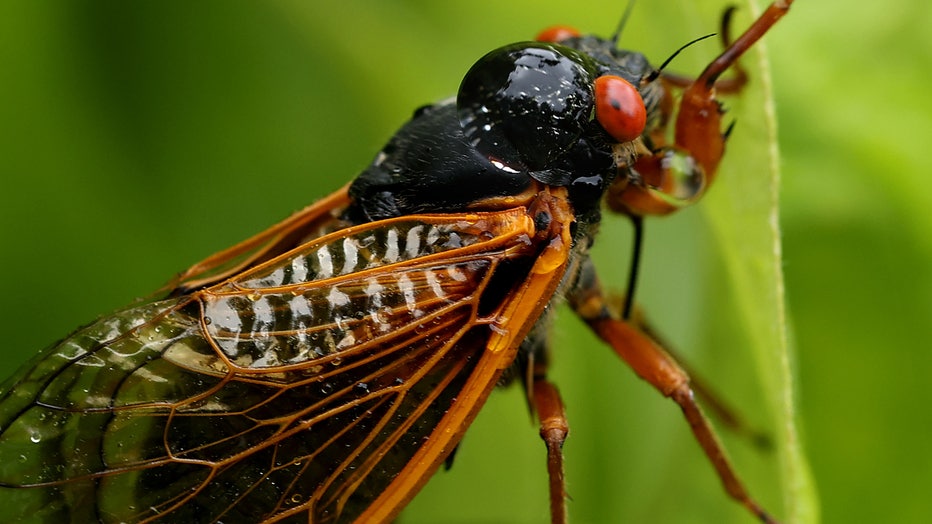Cicadas in Chicago: Rare double emergence to hit Illinois this summer

Cicada invasion to hit Illinois this summer
For the first time in 200 years, not one but two cicada groups are set to appear at the same time in Illinois in what's called a "dual emergence."
CHICAGO - Chicago's going to be buzzing with a rare double emergence of cicadas this summer.
For the first time in more than 200 years, two broods of cicadas will emerge after spending years underground, invading backyards across Illinois and several other states.
Along with Illinois, Indiana is likely to see both broods this year, according to Cicada Mania, a site dedicated to information about the insect with bulging red eyes.
There are more than 190 known varieties of cicadas in North America and most species come out each year. But there are also periodical broods of cicadas that stay underground for either 13 years or 17 years.
The last time these specific groups — known as Brood XIII and Brood XIX — appeared at the same time was in 1803, when Thomas Jefferson was president, Ohio became the 17th state, and the U.S. purchased a massive amount of North American territory from France in a transaction known as the Louisiana Purchase.
When will cicadas emerge in 2024?
Both broods typically start to emerge in mid-May when the soil gets warm enough, and stay through late June, Cicada Mania says.
"A nice, warm rain will often trigger an emergence," the website says.

A drop of water lands on the back of a periodical cicada, a member of Brood X, on June 03, 2021 in Columbia, Maryland. (Photo by Chip Somodevilla/Getty Images)
What are cicadas?
Cicadas are a family of insects called magicicadas, according to The Associated Press. They differ from other insects in that both the nymphs and adults have a beak they use to drink plant fluids. Adults have two sets of wings.
Cicadas are not locusts. They are not grasshoppers. Those are different species. But when Europeans first arrived in America, some started calling them locusts and even grasshoppers.
There are more than 190 known varieties of cicadas in North America and 3,390 of them around the world. Except for one species in India and one in Fiji, only the U.S. has the periodic cicadas that stay underground for most of their lives.
Cicadas don’t harm people or pets, though dogs have been known to binge and eat too many.
Scientists say you shouldn’t kill cicadas.
The only things cicadas can harm are young trees if they climb up them and try to plant eggs on weak young limbs. Experts say netting young trees protects them. Do not use pesticides.
Why are cicadas so loud?
Cicadas are known for their loud voices. According to the AP, it’s all about sex.
They sing by flexing small drum-like organs in their abdomens, and what you hear in the trees is called a chorus of males trying to attract females. Think of them as the insect version of a boy band. Each species has their own song. When the females are interested, they twitch their wings.
Get thousands of them together and they can reach 105 decibels, which is louder than a lawnmower.
You can track and report cicada sightings on cicadasafari.org.
How long do cicadas live?
A cicada's lifespan is dependent on the species.
According to pest control service Orkin, annual cicadas, known as dog-day cicadas, live for about 2-5 years.
Periodical cicadas live for about 13 or 17 years if left undisturbed in their underground habitats, depending on the species.
A majority of cicadas that live north of Mexico live a majority of their lives underground as nymphs than they do as adults above ground, Orkin says.
Fox TV Digital and The Associated Press contributed to this report.

